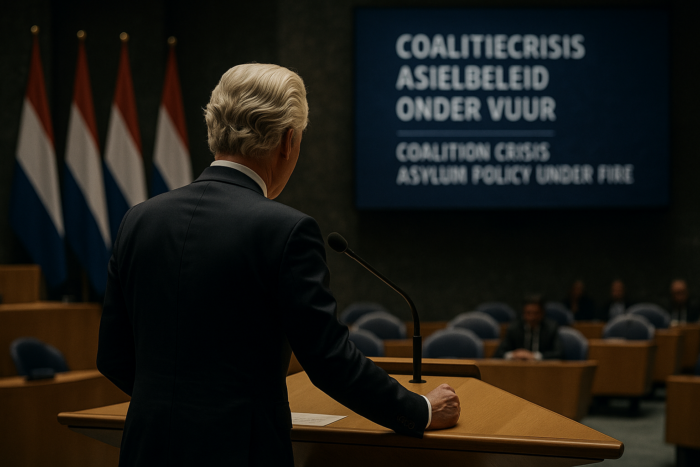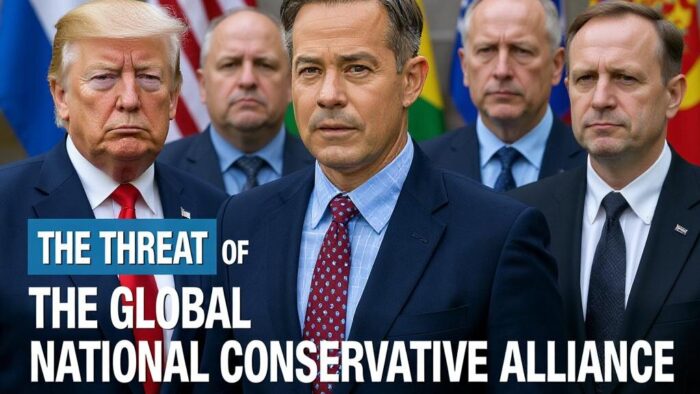The Dutch far-right election setback delivered a sharp blow to Geert Wilders as his anti-Islam Freedom Party lost over a quarter of its parliamentary seats. On 30 October 2025, Reuters reported that centrist D66 leader Rob Jetten expressed confidence in forming a government after his party tied with Wilders’ PVV at 26 seats each, with mainstream parties ruling out coalition with the far-right leader after he brought down the last government. The article begins:
Dutch centrist leader Rob Jetten said he was “very confident” of being able to put together a government after his party’s strong showing in parliamentary elections that saw Geert Wilders’ anti-Islam Freedom Party lose ground. With most of the votes counted, Jetten’s D66 and Wilders’ PVV were neck-and-neck on Thursday, with both projected to take 26 seats in the 150-seat lower house of parliament. That was a sharp drop for Wilders’ party, which lost over a quarter of its seats in two years, stemming from a poor performance in its first attempt at government and growing competition on the right. However, the factors which led to the PVV’s decline were not expected to herald a wider eclipse of the populist right in Europe, where nationalist parties lead in the polls in France, Germany and Britain.
Key Points
- The D66 party tripled its seat count with an upbeat campaign, polished messaging, and a surge in advertising spending, while Wilders’ PVV lost over a quarter of its seats stemming from poor government performance.
- Major mainstream parties have ruled out governing with Wilders after he brought down the last coalition, leaving him with no viable path to a majority despite tying for first place with 26 seats.
- Rob Jetten, at 38 years old, would become the Netherlands’ youngest and first openly gay prime minister if he successfully completes coalition talks in the fragmented 150-seat parliament.
- The election was seen as a test of whether the far right can expand its reach or has peaked in parts of Europe, with the outcome suggesting there are limits to its appeal while remaining an enduring part of the political landscape.
National Conservatism in the Netherlands: PVV and FVD’s Ties to Orbán and Russia
The Global National Conservative Alliance (GNCA) in the Netherlands manifests through Geert Wilders’ Party for Freedom (PVV) and Thierry Baudet’s Forum voor Democratie (FvD). Both parties have aligned with Viktor Orbán’s Patriots for Europe alliance in the European Parliament, cementing their position within the transnational national conservative network. Wilders’ PVV achieved electoral victory in November 2023, though the coalition government collapsed in June 2025 over asylum policy disputes when partners refused his “ten-point plan” on asylum. Wilders has cultivated substantial Hungarian ties, receiving the Order of Merit in 2022 and maintaining contact with Orbán since 1995. His wife is Hungarian, two cabinet ministers share Hungarian descent, and VSquare.org reports that Orbán’s elite bodyguards protect Wilders during Hungarian visits.
The FvD represents a more conspiratorial wing of Dutch national conservatism. Baudet has expressed hope that Russia would win the war in Ukraine, calling Putin “fantastic” and “one of the most hopeful things in the world today.” John Laughland, the FvD’s party ideologue, attended a Kremlin-linked conference in Sochi where he met with former Russian President Medvedev and Voice of Europe influence scandal figures. Laughland previously worked as research director at a Russian-funded Paris institute between 2008 and 2018. Donald Trump and Tucker Carlson exploited Dutch farmer protests to advance conspiracy theories, with Baudet spreading the “Great Reset” narrative during demonstrations. He appeared on Steve Bannon’s podcast promoting these theories, illustrating transatlantic national conservative networking. Dutch investigative journalism revealed Baudet’s contact with pro-Kremlin Ukrainian Vladimir Kornilov, with leaked messages showing discussions about financial arrangements.
The Dutch security service AIVD warned Baudet in 2020 that his party was targeted by Russian intelligence, alerting him to a woman with FvD connections who maintained Russian embassy ties. Baudet took no action and failed to inform party officials. Research from the Clingendael Institute demonstrates that Dutch far-right supporters show significant support for Russia cooperation, with Dutch extremists particularly susceptible to covert Russian influence operations.
External References:
— Hungary connection: Orbán’s elite bodyguards protect Geert Wilders (VSquare)
— Thierry Baudet was warned about Russian influence in 2020 (DutchNews.nl)
— Polarisation of attitudes towards Russia in the Netherlands (Clingendael Institute)
Disclaimer: The Global Influence Operations Report (GIOR) utilizes AI throughout the posting process, including the generation of summaries for news items, introductions, key points, and, often, the “context” section. We recommend verifying all information before use. Additionally, all images are generated using AI and are intended solely for illustrative purposes. While they represent the events or individuals discussed, they should not be interpreted as real-world photography.










